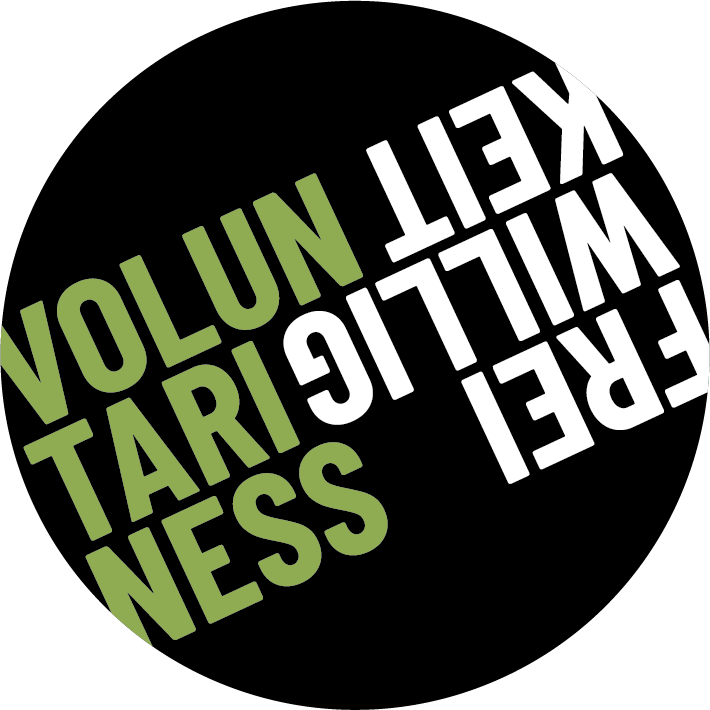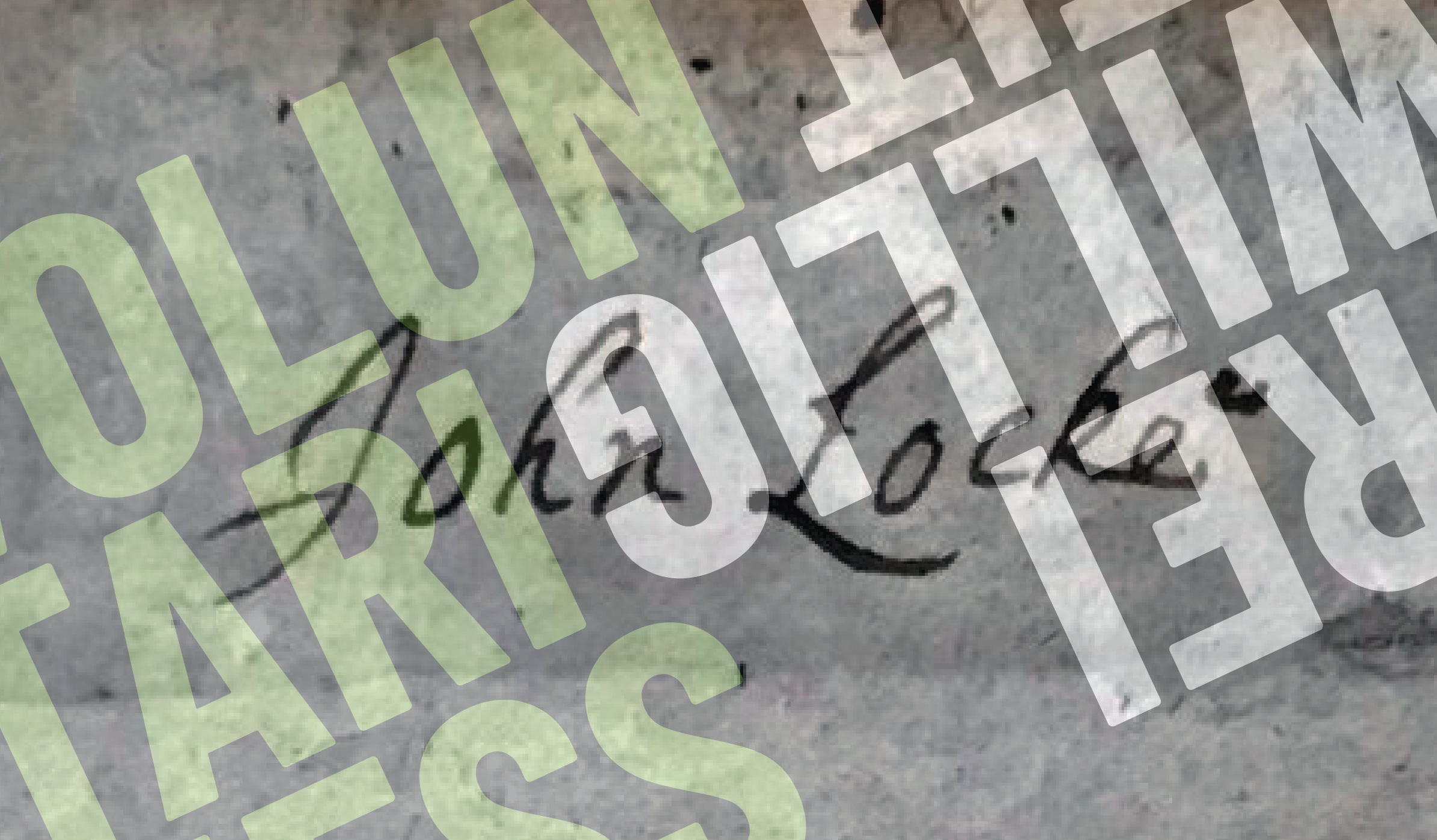

Christian Bock works in the field of practical philosophy and holds a PhD from the University of Erfurt.
Some Brief Observations in Light of the Ideas of Harry G. Frankfurt
What is voluntariness? I would like to address this question by discussing a proposal by Harry G. Frankfurt, a U.S. philosopher whose main areas of research are the philosophy of the person and the debate on free will. In his reflections on the desires of persons, he puts forward two key propositions. (1) Desires can shape action. They can motivate actions. Frankfurt calls these first-order desires. (2) Persons are characterized by the fact that they can decide how to take a position on these desires. They can choose (to a certain extent) which first-order desires will lead to an action and which will not. Such desires, which are geared towards first-order desires, Frankfurt calls second-order desires.
On Desires
Let’s take my first-order desire to have a coffee as an example. I get up and make myself a cup of coffee. A corresponding second-order desire relates to this first-order desire—in this case, my desire to drink coffee. Do I desire to want to have a coffee? Do I want or desire to be a person who wants to drink a coffee now? If I answer in the affirmative, which is expressed in a corresponding second-order desire, I drink the coffee voluntarily. To shed more light on this, let us imagine that our system of desires is built like a house. On the first floor there are desires of the first order. On top of the first floor there is a second floor. If this second floor makes a perfect fit with the first floor, we speak of voluntariness (the first-order desires were freely chosen).
Frankfurt gives the example of two addicts. One is a voluntary addict (a willing addict), the other an involuntary addict (an unwilling addict). Both have the same first-order desire: they want to take drugs. However, they differ in their second-order desires. The voluntary addict has the second-order desire that the desire to take drugs be acted upon. His house is aligned, so to speak. The two floors make a perfect fit. The involuntary addict is a different story. She has the desire to stop using drugs: she wants to use drugs, but in no way wants this desire to be acted upon. The floors of her house are not aligned. She is not acting voluntarily when she takes drugs because she has a higher-level desire to free herself from addiction. Frankfurt’s approach is intuitive. People act voluntarily when there is a sort of harmony among their desires. If they are the person they want to be, then they are behaving voluntarily. However, if a person does not want to be the person he/she is, then he/she is not behaving voluntarily.
In addition to this intuitive appeal, I want to highlight another aspect, which has significantly influenced the debate on free will and can be summarized as follows, taking the example of the addicts: voluntary addicts exist. For Frankfurt, an addiction per se is not an obstacle to freedom or voluntariness. The point of his approach is that one does not need to be able to act otherwise in order to act voluntarily. The addict takes the drugs voluntarily even if he has no other choice than to take them.
Identification with Desires
Frankfurt himself points out a potential problem with this approach. Let’s say I drink a coffee voluntarily because I want to be a person who drinks a coffee now. But do I want to be a person who wants to drink a coffee now? This question raises the issue of a third-order desire. This is because it refers to a second-order desire. And the question must be answered in the affirmative if we are ultimately to speak of my (truly) drinking the coffee voluntarily. And this, if not limited, can go on indefinitely. Do I want to be a person who wants to be a person … who wants to be a person who has a coffee at this particular moment? Or, to stick with the metaphor: if I am unable to bring this to a close, I am building a house with no top floor. According to Frankfurt, what ultimately matters is so-called identification withdesires. One could argue that I identify with my desire to drink coffee and the voluntary addict identifies with his desire to take drugs. Eventually, I want to be a person who wants to drink coffee. The voluntary addict wants to be a person who wants to take drugs. Isn’t that a kind of identification with a desire?
Gary Watson, who explores freedom of action and its connection with motivation and responsibility, rightly points out that the identification we are looking for must not fall back on higher levels. We must do without higher levels to explain what it means to identify with a desire or a level. Otherwise, there is a danger that the identification will never come to an end, since we would always have to fall back on a higher level. We must not keep adding another floor to the house. We need a top floor.
On Love
This is where love comes into play. In short, love (including self-love) constitutes the top floor. According to Frankfurt, love supplies our true interests. When we recognize what we truly and sincerely love, we can direct our desires toward it and act voluntarily. There is no level above love. In other words, there are no reasons for love, only reasons that love gives us.
To grasp the concept of true interests, let’s imagine parents bringing up their child. The child does not want to brush her teeth and makes this abundantly clear. The parents do not give in despite the child’s complaints and instead advance her real or true interest. The child’s true interest is in having brushed teeth. The parents, out of love for their child, are engaged in a constant search for and furtherance of her true interests. This is especially true of self-love. One is constantly in search of one’s true interests and trying to advance them. According to Frankfurt, self-love must in no way be confused with selfishness. It is not a matter of putting one’s own interests above those of others. It is a matter of the need to critically ask oneself whether the desires and interests one is currently pursuing are really one’s own true interests.
On Voluntariness
Let’s take a another look at our house. The top floor constitutes that which we desire wholeheartedly. Here the identification does not take place with the help of a higher level. The top floor is home to our true interests. We act voluntarily only when we act in accordance with our true interests. For only then is the house, with all its floors, aligned. Viewed in this light, if we act against our true interests, we are not acting voluntarily. This approach leaves a multitude of issues to be clarified. Is the voluntary addict really acting voluntarily? Or is he acting involuntarily because the drug addiction contradicts his true interests? Do I go and make coffee voluntarily only if this desire can ultimately be traced back to something I desire wholeheartedly?
The most remarkable thing about this theory, as I see it, is the following thought. While love, according to Frankfurt, is something that gives us reasons to behave in a certain way, love itself requires no reasons. Love is ungrounded, but grounding. We do not pick and choose who or what we love. And yet this love gives us reasons. What does this say about our house? It tells us that we have no influence on the form of the top floor. This is because love prescribes its form, and we have no influence on love. This, in turn, influences the form of the entire house or all the other floors. Because if everything is ultimately to be aligned and we have no influence on the top level, this single level of love predetermines the entire form.

Suggested Citation: Bock, Christian: “Voluntariness and Love: Some Brief Observations in Light of the Ideas of Harry G. Frankfurt”, Voluntariness: History – Society – Theory, September 2022, https://www.voluntariness.org/voluntariness-and-love/.





